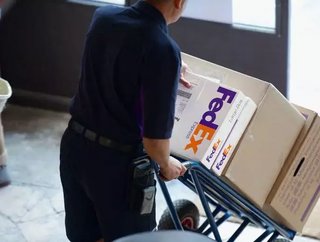Comment: Finding the right synergy between going global and staying local

With the advent of globalisation, businesses have opened themselves up to new areas of growth but often to the detriment of their local business environments. Conversely local businesses may be reluctant to ride the globalisation wave due to change which comes too much and too fast. Global for some is synonymous with efficiency but with that comes more standardisation. Meanwhile local business environments are seen as more agile and flexible but sometimes struggle to achieve global scale. It’s a tricky balancing act.
Working closely with a whole host of internationally savvy small and medium sized enterprises (SMEs), FedEx understands that global brands can absolutely adopt a local approach, and vice versa. It’s time for businesses to rediscover local environments and understand how this can be the catalyst for further expansion.
Understand your industry to understand the balance
Industrial context as well as a firm’s overall strategic direction is central to understanding what the balance between local and global should be. If we take the automotive market as an example, we can see that it is a force to be reckoned with, accounting for more than £71.6bn turnover and with 160 countries importing UK vehicles. A company which has made clear inroads into this market has been Ubisense – a world-leader in Enterprise Location Intelligence solutions.
Not only have they improved decision making but they have also automated processes for many companies working in the automotive sector. Estimates from Ubisense have recently pointed to how around 4% of the world’s passenger vehicles are now built with an Ubisense solution.
Ubisense is a prime example of a company which understands its market. It has achieved a global presence, with 500 customers across 50 countries, and its service is underpinned by research and development through local specialist knowledge in Cambridge.
SEE ALSO:
Collaboration is key
Companies benefit when there are a range of views brought forward to the table. When managers identify best practices and insights and distill this across the company, all employees gain access to a shared pool of knowledge.
Many businesses are established by a group of co-founders as genuine peers can help to challenge insights and support the business in equal measure. One founder for example may have in-depth global knowledge, whilst another has built up a career through specialising locally first.
Location is everything
Not all businesses are established in global metropolises like London. They can also tap into more regional locations like Cambridge where they can access infrastructure founded by generations of entrepreneurs. One of the world’s leading universities means that the city is global in its own right but its relatively small scale means that it can also be considered as a local community with a variety of local businesses.
Even locations like London are testament to local being global. Where a quarter of residents are foreign born, the metropolis is buoyed by a healthy cultural mix, with an employee base which is multi-dimensional and multi-disciplined.
Businesses are opening up to local and global needs and knowledge
Whilst globalisation has undoubtedly led to a more interconnected world, it can also lead to business change coming too hard and too fast. Finding the right balance between global and local could be the exact change that a company needs. As well as those factors listed above, businesses can also shift the company structure so that global players now work local. These tips can show the interplay between global and local forces and foster a culture of “change from within (and indeed) outside the organisation”.






